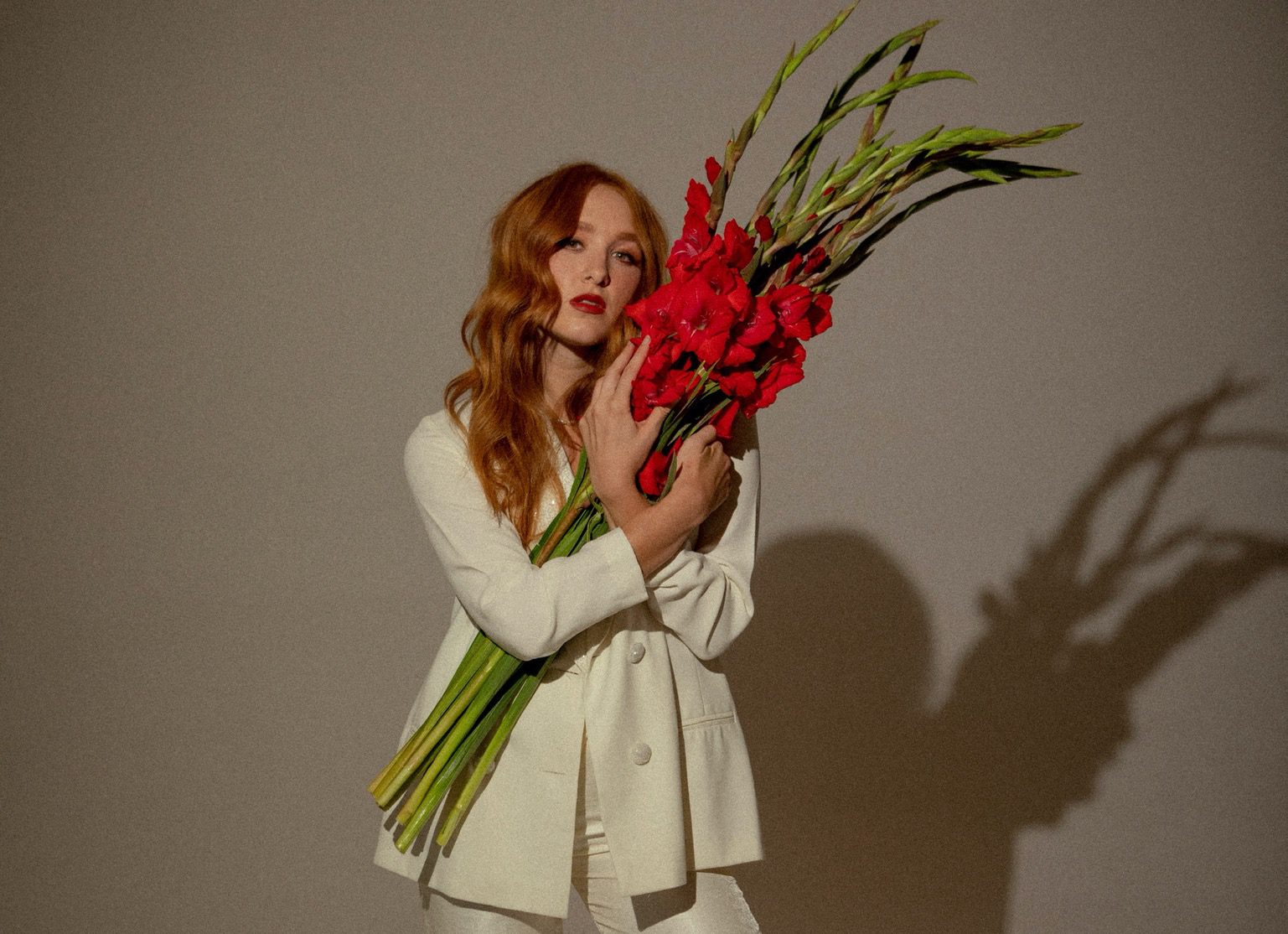SPOTLIGHT: Bella White on the Tiny Universes in Songs

Bella White (photo by Bree Fish)
EDITOR’S NOTE: Bella White is No Depression’s Spotlight artist for April 2023. Learn more about her and her new album, Among Other Things, out this Friday, in our interview, and look for more throughout the month.
After the release of my first album in 2020, I recorded a new 10-track record for release in spring 2023. The album definitely departed from my earlier stringband/bluegrass-oriented release and allowed me to step outside of my initial comfort zones and explore musically in a tremendously eye-opening way.
The songs for this album, Among Other Things, reflect a cycle that is more emotionally intimate than my earlier work. Like so many others, the global full-stop of the pandemic in March 2020 left me isolated, alone with my own thoughts. The collective grief brought on by the pandemic echoed through me, and forced me to reckon with the impact of losses I experienced during my childhood as well as hardships in my adult life. I’ve always been one to process through journaling, which often for me bleeds into my songwriting, and one of the things that changed drastically from my last album to this one is the way in which I approached writing songs.
I came up in the music industry in my late teen years. I was 19 when I recorded my first album and did most of the writing in the years leading up to it, so naturally I would feel a bit farther away from it now. When I look back on the themes and feelings that I was hoping to get across, I see a lot of yearning. I was essentially sharing my journal. I’m not saying that I don’t do that still — boy, do I yearn — but I feel as though I’ve perhaps widened my worldview and care to craft a little bit more. I am more engaged with my feelings, writing from a place deeper within my heart, and perhaps I know myself better. This all makes sense as a natural part of growing up.
I’ve spent a lot of time contemplating the role of women as caretakers: my mother taking care of me during my early years, all the women affected by the pandemic (juggling children at home, full-time jobs, caring for the sick) and the sacrifices women make that I may one day have to as well. With this in mind, I wrote “Rhododendron.” I was staying at my mum’s house on Vancouver Island during some of the earliest days of the pandemic. She had been traveling prior to everything locking down and got stuck overseas for a while, so it was just me and my tuxedo cat, Billie. At the time, it was so scary to feel so deeply far away from the people that I needed and wanted the most. But, as someone who can seemingly only write a melancholy song, this ended up becoming a very creatively rich time for me. I took a deep dive into those feelings of far away and lonely. To be quite frank, I wanted my mummy and I searched for some fluffy, ornate ways of saying so. Songwriting is such a tremendous gift for that reason. We can take the ugliest, most painful emotions and dress them up in a way that makes them seem graceful and also very human.
Could I be a mother or a lover to something greater than my own instinct to suffer?
And would a sheep run if she knew she was for the slaughter, or would she simply let her soft wool warm her daughter?
I found it exciting to write songs that were not just about my heartbreak over a romantic situation or unrequited love, but rather my heartbreak over something much more widely sprawling than that. The human capacity to love and feel sorrow never stops surprising me, and I find it fascinating how interchangeable those sensations are. I swear to God, one day I will write with a happy sentiment, but right now — and especially throughout the pandemic — I find it much easier to relate to people over common hardship.
Through writing these songs, I was able to explore how my own childhood led me unwittingly to operate with an emotional “scarcity mindset.” Over the years, I felt a scarcity of control, scarcity of money, scarcity of love. In many of these songs, I ponder how the “scarcity mindset” can apply to emotions and human interactions. The connection between big love and big loss, or lack thereof, makes most of have a lot in common.
When I write a song, I am trying to create a tiny universe that is actually quite large, something that feels vast but is readily accessible — a place to explore that common ground, and no matter where you are arriving from, you feel held in some way and can find something there to relate to.




